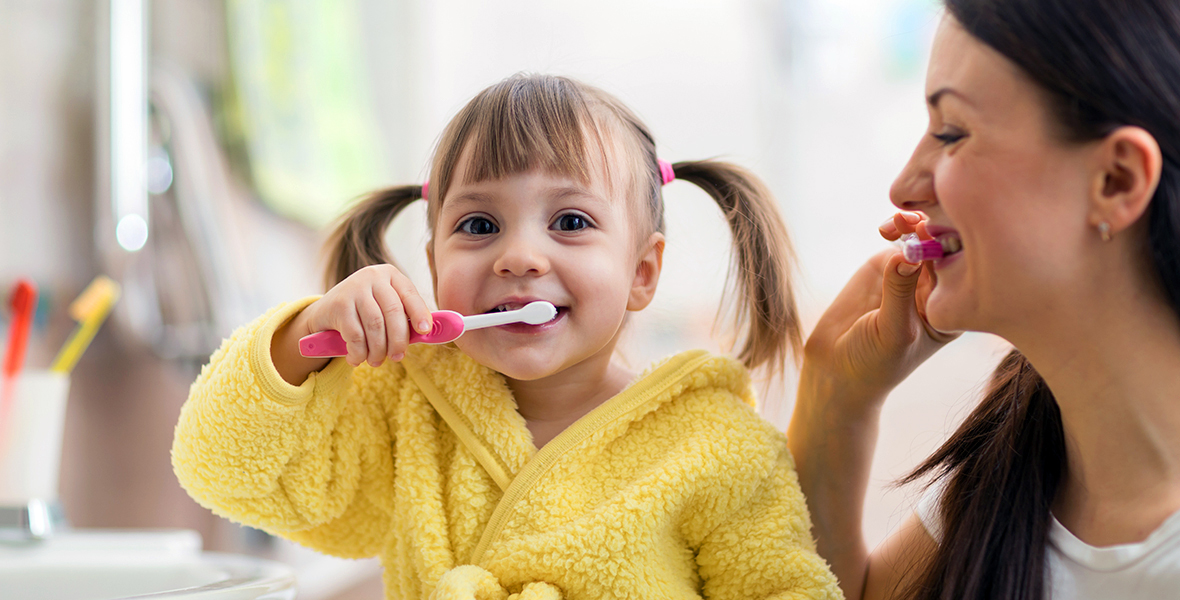- Self-esteem is how children view their abilities and self-worth.
- High self-esteem builds confidence and mental health, while low self-esteem increases risks of anxiety and depression.
- Factors like bullying, lack of choices, adults providing too much help and comparisons can lower a child’s self-esteem.
- Parents can nurture self-esteem through praise, empowerment, encouraging independence, fostering friendships, teaching positive self-talk and journaling.
Resources for Mental Wellness
You can help children establish a good foundation in building their mental wellness.
Research shows that by consistently working with children to build these skills, you can help them increase resilience, enabling them to better handle challenges and stress that may come their way. Studies also show that these habits – from mindfulness to volunteering – can positively impact a child’s mental health.

Helpful Strategies
Building Self-Esteem Helps Your Child’s Mental Health
How to Teach Your Child About Developmental Differences
-
Acknowledge and Discuss Differences: When children notice developmental differences, engage in open conversations that highlight both similarities and differences, fostering empathy and understanding.
-
Encourage Inclusive Interactions: Support your child in forming relationships with peers of diverse abilities to promote acceptance and reduce biases.
Pushing Back Against Negative Self-Talk
Tools for Everyday
Talking to Kids about Mental Health
- Get in the habit of discussing mental health before problems arise. You don’t need to have all the answers.
- Mental health is how we think, feel and act. Talk about feelings openly by sharing your own and how you handle them.
- Choose a calm time to discuss concerns, listen to your child's feelings, and seek professional help if needed.
Kindness Benefits Children’s Mental Health
- Kindness can improve mental health by boosting mood, increasing feelings of belonging and reducing anxiety
- When kindness becomes a habit, it can increase a child’s self-confidence
- There are simple ways you can teach your child about acts of kindness
Growing Our Gratitude
Building Connections with Kids
Family Values
- Defining family values helps children feel secure, and a sense of family connection and belonging, which benefits their mental health.
- It can also help you make decisions and set goals as a family, as you have a solid sense of what is important to you.
How to Help Your Kids Practice Mindfulness
How to Help Kids Form Good Habits
How Routines Help Kids' Mental Health
- Routines help kids feel safe and build independence.
- Having regular routines can also help reduce conflict and power struggles.
- Adding routines to your life doesn’t have to be complex. You can start today and build on them over time.
The Benefits of the Outdoors on Children's Mental Health
- Being outside is good for kids’ mental health.
- Spending time outdoor door can lower stress, increase physical activity, and improve focus, mood, and sleep quality.
- There are many different ways to help kids get outdoors, even if your access is limited.
Getting Back into Routines
- Routines help children’s mental health by providing stability, structure and a sense of safety.
- When routines are disrupted, kids may act out with challenging behaviors or struggle with strong emotions.
- There are simple things you can do to help kids whose routine has been disrupted.
SMART Goals and Kids’ Mental Health
- Goals are important for our mental health because they can improve our mood and sense of purpose
- Creating SMART goals is a way to help kids break down goals into smaller parts, which helps their sense of progress
- Setting goals can help you better understand your kids
7 Ways to Cultivate Happiness
- Happiness is linked to better physical health and educational outcomes.
- There are routines and habits that you can encourage in kids to build their happiness.
- Social connections and friendships boost positive emotions and a sense of belonging.
- Acts of kindness improve mood and can involve the whole family.
- Focusing on the present moment and expressing gratitude helps increase positive thinking patterns.
Mental Fitness Challenge
Beyond Kindness: Talking to Kids About Justice
Vacations/Holiday Tools
Kids and Volunteering
Celebrating Non-Majority Holidays in the U.S.
- Teaching your child about holidays your family celebrates helps them build cultural identity and provides them with information they can pass on to their friends.
- You can encourage sharing by suggesting classroom sharing and inviting friends, neighbors and families of your child’s friends to participate in celebrations.
- Encouraging curiosity and embracing cultural differences can help enrich your child’s connections with peers.
The Good and Bad of Boredom
- Boredom challenges children to come up with their own solutions and engage in creative play, which is beneficial for their mental health.
- Having time without planned activities allows children to explore and entertain themselves, fostering independence.
- Allowing children to experience boredom helps them learn to manage frustration and develop resilience.
Your Guide to Managing Indoor Boredom
- Use puzzles, books, crafts, building blocks and brain games to stimulate creativity and problem-solving.
- When you can, try family activities like cooking together, which can improve reading skills, teamwork and a sense of belonging.
- Get active by building obstacle courses, circuits, scavenger hunts or dance contests to keep kids moving.
7 Ways to Help Your Kids Maintain Summer Structure
- Having routines like regular bedtimes, wake-up times and daily schedules can provide stability and help behavior.
- Continue enforcing rules and chore charts to avoid power struggles and maintain a positive relationship.
- When possible, involve children in structured activities like summer camps or sports to keep them active and social.




